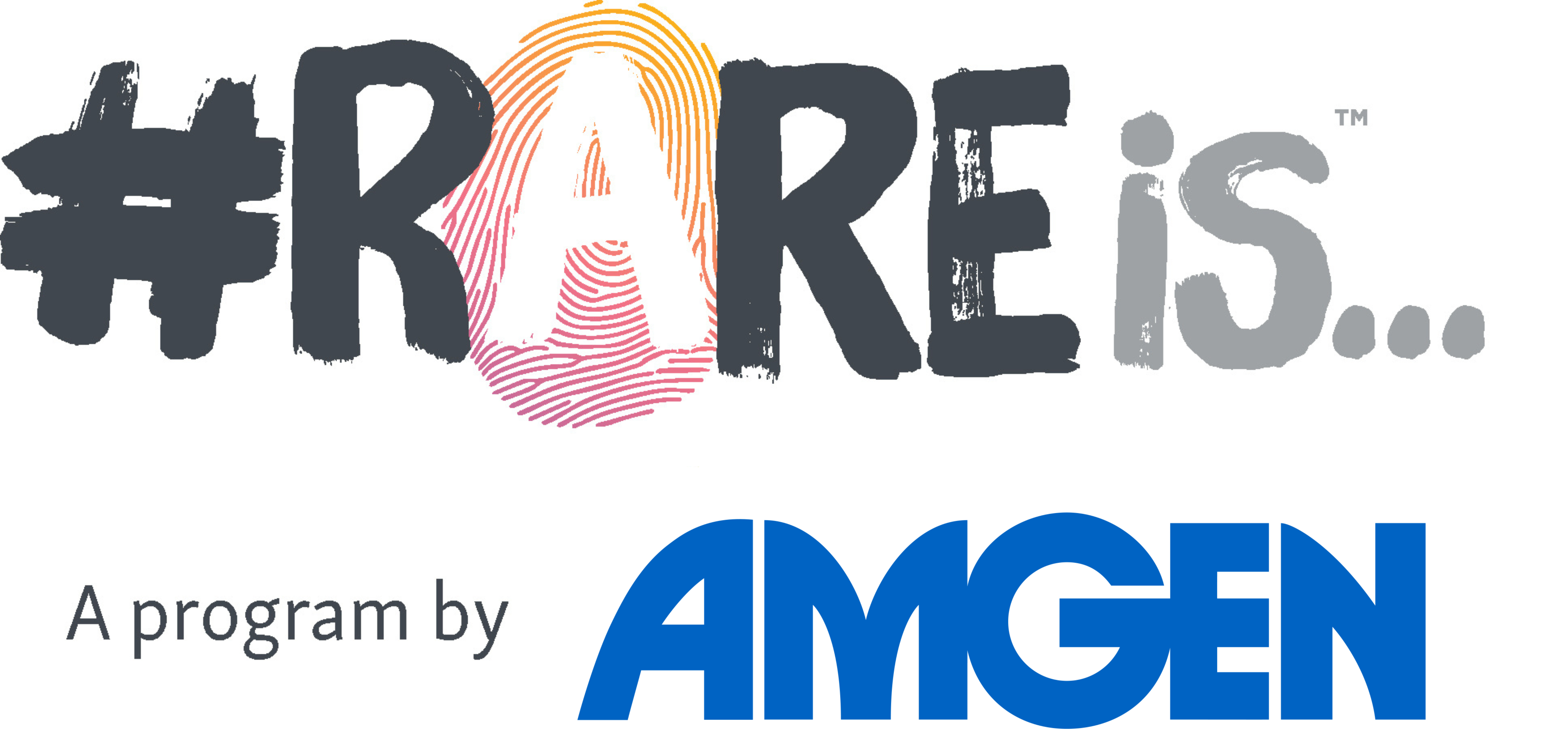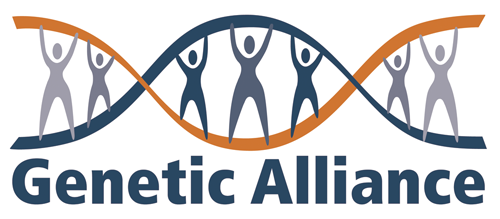A carrier is a person who has a genetic variant, meaning the person has a change in their DNA on one of their two copies of a gene. Often, this variant is associated with a rare condition. This variant may or may not lead to symptoms of a rare disorder, but it can be passed on to children.1,2
Genetic testing may lead to a diagnosis, but it may also show if you or a loved one is a carrier of a genetic disorder.
Most of our DNA (99%) is the same. Yet a difference of just 1% determines individual characteristics like eye and hair color – and our predisposition to disease. These genetic differences are known as “alleles” and may be dominant or recessive.3
The content in this section may not be applicable in all countries. Genetic testing regulations vary and in some instances may only be carried out at the request of the court, or by a doctor for medical or scientific research purposes.
What is a genetic carrier?
Typically, humans have 46 chromosomes – which are structures that contain our DNA. We inherit one set of 23 chromosomes coming from the father and the other set from the mother.4 A person is defined as a genetic carrier if they have one normal copy of the gene and one variant copy responsible for the condition. (Click here to learn more about the genome)1,2
What types of inheritance are there?
Autosomal recessive genetic disorders may occur if both parents carry one copy of the mutated or variant gene and pass it on to their child. Often, parents will not show any signs or symptoms of the genetic disorder and therefore not be aware they are carriers of a genetic disorder.1,2,5 If you know you are a carrier of an autosomal recessive disorder you should consider having your partner tested before you start planning to have children.6
There is a pair of chromosomes that determine our gender. Women have two X chromosomes and men have an X and a Y chromosome. X-linked disorders are caused by mutations in genes on the X chromosome and may either be recessive or dominant. As males (XY) carry only one copy of the X chromosome, they will go on to develop the condition whether it is recessive or dominant – and often more severely than females.5
On the other hand, females (XX) will usually inherit one mutated and one normal copy of the gene. In X-linked dominant disorders, a mutation in one of the two copies of the gene is enough to cause the condition. In X-linked recessive conditions, females would have to inherit abnormal copies of both X genes to cause the disease.5 Females with one copy of the mutated gene are considered to be carriers and may or may not develop physical symptoms of the disease.7 In rare circumstances, the second X chromosome can be inactive, causing a carrier to have the full condition.8
Does a genetic carrier have symptoms?
The traditional view has been that a genetic carrier will not exhibit symptoms of the disorder. However, the scientific understanding of genetic disorders has since evolved to show that carriers may go on to develop physical symptoms. Unfortunately, many people may not link these symptoms to their carrier status or may not even be aware they are a carrier. One reason is because carriers may not always have the exact same symptoms as someone with a condition. It is recommended that you talk to your doctor if you are experiencing carrier-like symptoms or related health challenges to determine the best path forward for you.7,9
Why is it useful to know if I am a carrier?
Getting tested for a genetic disorder or to find out if you’re a carrier is a complex decision for many people. There are several reasons why it may be useful to know if you are a carrier, including family planning, learning if you’re at risk for developing symptoms of a rare disease, helping make informed decisions about managing your health care and sharing information with family members who may also be at risk.9
What is the chance of my child getting the mutated gene?
A genetic carrier of an autosomal recessive disorder is at risk of passing down the condition to their children, but only if their partner is also a carrier of the same condition. If both parents are carriers of the same genetic disease, there is a 25% chance that both parents will pass on a copy of the mutated gene and their child will develop the condition.4
The probability of passing on an X-linked recessive genetic disorder is more complicated and differs between men and women. The sons of a male with a recessive X-linked disorder will not have the condition (a man passes on the Y chromosome to his sons), but his daughters will have one copy of the gene and will be considered carriers. Female carriers of an X-linked recessive disorder have a 50% chance of having a son with the disease and a 50% chance of having a daughter who would be considered a carrier. 6
Where can I find support?
Being diagnosed as a carrier may be a relief for some people. However, for others, it may be a frightening and isolating experience, especially if they already have children who may be at risk for the genetic condition. Genetic carriers may have concerns about developing symptoms in the future, what it might mean when planning a family, or how the condition may have affected their immediate or extended family.9
Talking to friends or others who are a part of advocacy communities associated with the condition can provide a lot of support. You can find a list of patient advocacy organizations by visiting the National Organization for Rare Disorders website here.
It can be helpful to discuss your feelings with a genetic counselor, who is specially trained in genetics and counseling, in order to support you emotionally and help you make informed health care decisions to help you plan for the future. Genetic counselors can also help you find resources to discuss planning your family, testing your children or offering information to other family members who may be at risk. Click here for more information on the role of the genetic counselor.
The Genetic Alliance
The Genetic Alliance is a nonprofit health advocacy organization that aims to engage individuals, families and communities to transform health.

Remember The Girls
Remember The Girls’ mission is to raise awareness of the issues facing female carriers of X-linked recessive genetic disorders. It provides a forum for X-linked females to share their stories, ask questions, provide and receive emotional support; and to advocate for increased attention of the medical community to the physical and emotional issues of females who carry X-linked disorders.
References
- Centers for Disease Control and Prevention. Genetics basics. Available at: https://www.cdc.gov/genomics/about/basics.htm. Last accessed November 2020.
- Genetic Support Foundation. Carrier screening. Available at: https://www.geneticsupport.org/genetics-pregnancy/prenatal-screening-tests/carrier-screening/. Last accessed November 2020.
- U.S. National Library of Medicine. National Center for Biotechnology Information. Genetics 101 – Understanding Genetics. Available at: https://www.ncbi.nlm.nih.gov/books/NBK115568/. Last accessed November 2020.
- Global Genes (2014) Genetic testing: Is this my path to diagnosis? Available at: https://globalgenes.org/wp-content/uploads/2014/05/GG_toolkit_seven_web.pdf. Last accessed November 2020.
- U.S. National Library of Medicine. What are the different ways in which a genetic condition can be inherited? Available at: https://medlineplus.gov/genetics/understanding/inheritance/inheritancepatterns/. Last accessed November 2020.
- U.S. National Library of Medicine. If a genetic disorder runs in my family, what are the chances that my children will have the condition? Available at: https://medlineplus.gov/genetics/understanding/inheritance/riskassessment/. Last accessed November 2020.
- Remember the Girls. Available at: https://www.rememberthegirls.org/about. Last accessed November 2020.
- NCBI. General aspects of X-linked diseases. Available at: https://www.ncbi.nlm.nih.gov/books/NBK11593/. Last accessed November 2020.
- National Society of Genetic Counselors. Carrier testing for genetic disorders. Available at: https://www.aboutgeneticcounselors.org/Genetic-Conditions/Carrier-Testing-for-Genetic-Disorders. Last accessed November 2020.
Thank you to the following organizations that provided strategic guidance on our genetic testing topics: Global Genes, Permanente Medical Group – Genetic Movement Disorder Clinic, Our Odyssey, One Rare and Remember the Girls.


